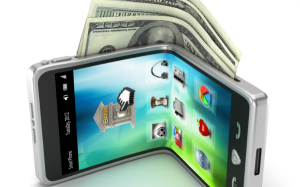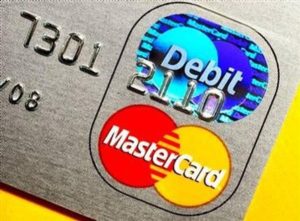 Today’s top story: How 3 people conquered credit trouble and bought homes. Also in the news: Top 10 apps for buying the right car at the right time, biting on Whole Foods new prices, and 6 Equifax hack rumors fact-checked.
Today’s top story: How 3 people conquered credit trouble and bought homes. Also in the news: Top 10 apps for buying the right car at the right time, biting on Whole Foods new prices, and 6 Equifax hack rumors fact-checked.
How 3 People Conquered Credit Trouble and Bought Homes
How to come back from credit trouble.
Top 10 Apps for Buying the Right Car at the Right Price
Get the car you want at the price you want.
Should You Bite On Whole Foods’ New Prices? Maybe Not
Are you really saving?
6 Equifax hack rumors fact-checked
Fact from fiction.
 Today’s top story: Lock down your data right now after Equifax breach.Also in the news: Health insurers ease rules for Harvey Victims, protecting critical documents from disaster with a bug-out bag, and the credit move than can bump your score in 30 days.
Today’s top story: Lock down your data right now after Equifax breach.Also in the news: Health insurers ease rules for Harvey Victims, protecting critical documents from disaster with a bug-out bag, and the credit move than can bump your score in 30 days. Yesterday Equifax broke the news hackers gained access to the Social Security numbers and other sensitive personal information for 143 million Americans (a group that apparently includes me, my husband, our daughter and probably you).
Yesterday Equifax broke the news hackers gained access to the Social Security numbers and other sensitive personal information for 143 million Americans (a group that apparently includes me, my husband, our daughter and probably you). Today’s top story: Americans favor debit over credit for their go-to card. Also in the news: How to choose a cash-back credit card, how to get an SBA disaster loan for your business, and the costly mistake people make when using debit cards.
Today’s top story: Americans favor debit over credit for their go-to card. Also in the news: How to choose a cash-back credit card, how to get an SBA disaster loan for your business, and the costly mistake people make when using debit cards. Today’s top story: 10-word answers to your biggest hurricane insurance questions. Also in the news: How to prepare before a hurricane hits, ditching debt when you’re newly single, and how to bring up money for the first time.
Today’s top story: 10-word answers to your biggest hurricane insurance questions. Also in the news: How to prepare before a hurricane hits, ditching debt when you’re newly single, and how to bring up money for the first time. Today’s top story: 5 things debt collectors can’t do – and 5 they can. Also in the news: The pros and cons of dropshipping, protecting intellectual property, and how to choose a rewards credit card.
Today’s top story: 5 things debt collectors can’t do – and 5 they can. Also in the news: The pros and cons of dropshipping, protecting intellectual property, and how to choose a rewards credit card. Today’s top story: Wells Fargo reveals wider abuses. Are you owed money? Also in the news: How to handle credit card bills in an emergency, how much cash do you carry, and a student is accidentally given $1M in financial aid, spends thousands.
Today’s top story: Wells Fargo reveals wider abuses. Are you owed money? Also in the news: How to handle credit card bills in an emergency, how much cash do you carry, and a student is accidentally given $1M in financial aid, spends thousands. Today’s top story: NerdWallet’s best credit card tips for September. Also in the news: The pros and cons of adjustable rate mortgages, how to start working odd jobs at TaskRabbit, and watching out for penalty APRs if you miss a credit card payment.
Today’s top story: NerdWallet’s best credit card tips for September. Also in the news: The pros and cons of adjustable rate mortgages, how to start working odd jobs at TaskRabbit, and watching out for penalty APRs if you miss a credit card payment.